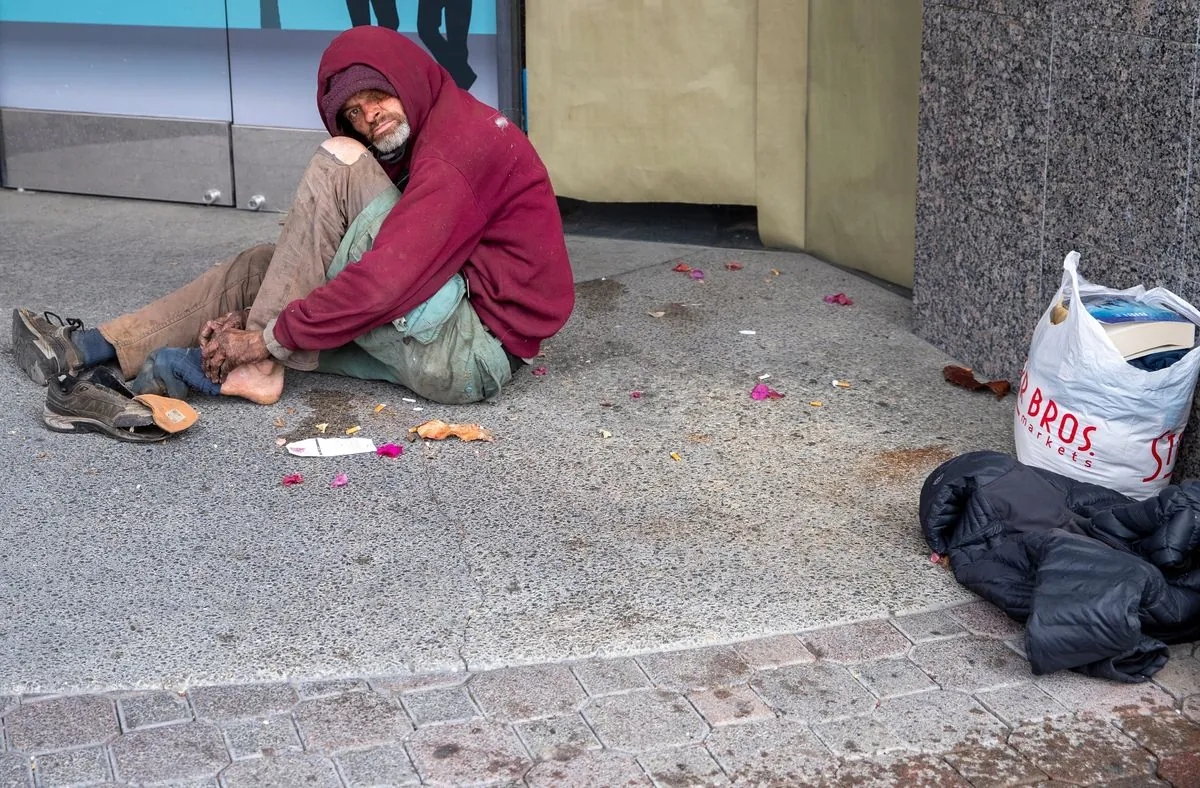Palm Springs Enacts Public Sleeping Ban Amid California's Homelessness Crisis
Palm Springs, a liberal tourist town, has banned sleeping on public property, reflecting a growing trend in addressing homelessness. This move comes despite California's substantial spending on housing programs.

In a significant shift, Palm Springs, a liberal tourist destination in California, has implemented a ban on sleeping on public property. This decision, made by the all-Democratic city council in July 2023, marks a turning point in the city's approach to addressing homelessness. The move aligns with a growing trend among cities, even those with progressive leanings, to take more assertive measures in tackling the persistent issue of homelessness.
The ban follows a June 28, 2023 ruling by the U.S. Supreme Court, which deemed camping bans constitutional. Since this decision, numerous California cities and counties have either passed or are considering similar ordinances. This trend underscores the mounting frustration among local governments as they grapple with the ongoing homelessness crisis.
California's struggle with homelessness remains acute, despite substantial financial investments. Since the 2018-19 fiscal year, the state has allocated over $20 billion to housing and homelessness programs. However, an estimated 180,000 individuals still experience homelessness in California, highlighting the complexity of the issue.

Palm Springs, a city of approximately 44,575 residents as of the 2020 census, has implemented various measures to address homelessness. These include rental assistance, allocating vacation rental tax revenue for affordable housing, and opening a 50-bed shelter in March 2023. The city's new ordinance, set to take effect once 85 temporary housing units are completed, aims to expand police authority in managing public spaces.
"We have to be able to say enough is enough as a community and as a country. We needed some kind of leverage to say you're not going to do this in our city."
Chief Mills advocates for a compassionate approach while emphasizing the need for community standards. The police plan to offer homeless individuals three options: enter a shelter, accept transportation to family, or face arrest.
Critics argue that such bans are counterproductive. Margot Kushel, a professor at the University of California, San Francisco, suggests that criminalization impedes job prospects and strains relationships between the homeless and law enforcement. She emphasizes the need for affordable housing and subsidies as more effective solutions.
Palm Springs, incorporated as a city in 1938, has long been a popular destination for tourists and retirees. Known for its hot springs, golf courses, and the world's largest rotating tram car, the city's economy heavily relies on tourism. With over 300 days of sunshine annually and a rich cultural scene, including the Palm Springs International Film Festival, the city faces unique challenges in balancing its tourist appeal with addressing social issues.
The homelessness crisis in Palm Springs and across California reflects broader societal challenges, including wage stagnation and rising housing costs. As cities implement new policies, the debate continues on how best to address the root causes of homelessness while maintaining public spaces and community well-being.


































